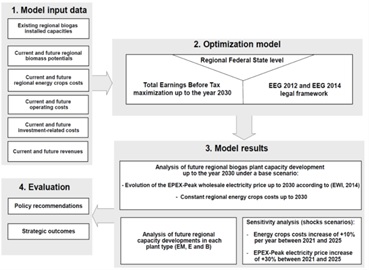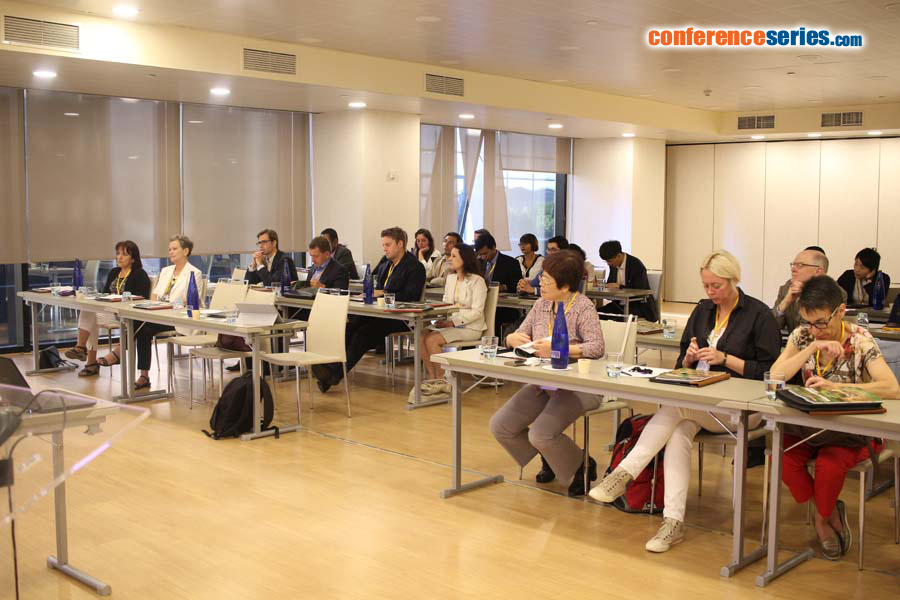
David Balussou
Karlsruhe Institute of Technology, Germany
Title: A model-based analysis of future electricity production from biogas in Germany
Biography
Biography: David Balussou
Abstract
Statement of the Problem: With the development of renewable energy sources in Germany the use of biogas for electricity and heat production has rapidly expanded in the past fifteen years. This expansion has been encouraged by several Federal governmental incentives and in particular by the electricity feed-in-tariffs introduced in the Renewable Energy Sources Act (EEG). Especially agricultural plants valorizing energy crops now constitute almost 80% of total biogas installations. However, volatile energy crops and electricity prices, combined with continuously evolving framework conditions, are a source of uncertainty for German plant operators. In this context, investment decision making for biogas plant projects is a difficult task that requires the development of decision support tools. Methodology & Theoretical Orientation: To this end, a linear optimization model has been developed to analyze mid-term developments up to the year 2030 for German biogas plant capacity. An economically optimal development plan for three main installation types is foreseen at the Federal State level and under various scenarios. Findings: The results highlight the influence of regional biomass potentials, revenues and electricity production costs as well as plant flexibilization and decommissioning. Future capacity expansion should mainly concern small manure plants and biowaste installations rather than agricultural plants which should undergo only modest development. Conclusion & Significance: Based on the model results recommendations for plant operators and policy-makers are formulated. Maintaining current subsidy levels for biowaste and small manure installations appears necessary in order to ensure a sustainable development of German biogas plants. Strategic planning, flexible plant operation and the increased valorization of agricultural residues represent key challenges. The developed model is further transferrable to other countries employing feed-in-tariffs (e.g. France, Italy and United Kingdom). This would contribute to the elaboration of a common European biogas strategy strengthened by the exchange of best technical, regulatory and economic practices.

Recent Publications:
- Herbes C, Pustisek A, McKenna R, Balussou D (2014) Überraschende Diskrepanz bei Biogas: lokal akzeptiert, global umstritten. Energiewirtschaftliche Tagesfragen. 5:53-56
- Balussou D, Heffels T, McKenna R, Möst D, Fichtner W (2013) An evaluation of optimal biogas plant configurations in Germany. Waste and Biomass Valorization 5:743-758
- Balussou D, Kleyböcker A, McKenna R, Möst D, Fichtner W (2012) An economic analysis of three operational co-digestion biogas plants in Germany. Waste and Biomass Valorization 3:23-41
- Balussou D, McKenna R, Fichtner W (2012) Forecasting the development of German biogas plants until 2030. 20th European Biomass Conference & Exhibition, June 2012, Milano (Italy)
- Balussou D, McKenna R, Fichtner W (2011) Ökologische und energetische Analyse von Co-Vergärungsanlagen. Proceedings in Forum Econogy, November 2011, Linz (Austria)
Speaker Presentations
Speaker PPTs Click Here


